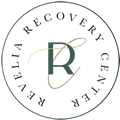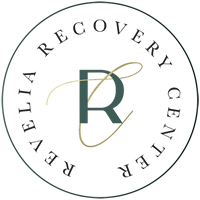Growing up with a parent who drinks or uses drugs turns a child’s world into an emotional minefield. Every day feels unpredictable. Will their parent be calm or violent? Sober or intoxicated? Loving or distant?
Many children in this situation learn to stay invisible, hiding their needs to avoid triggering conflict. Others are forced to grow up too fast, becoming caregivers when they should be cared for.
In this article, we’ll explore how a parent’s drug or alcohol abuse affects their children, why the effects often last into adulthood, and what can be done to protect their wellbeing and future.
100% CONFIDENTIAL
What does it mean for a child to grow up with addicted parents?
When children grow up with parents struggling with drug or alcohol addiction, their lives are often shaped by chaos, fear, and unmet needs. Instead of a stable and nurturing environment, they face emotional instability, neglect, and sometimes abuse.
These experiences don’t just impact their childhood—they can disrupt their emotional development, harm their physical health, and make it harder to form healthy relationships later in life.
Let’s look at how parental substance abuse affects children and why its consequences often last well into adulthood.
Living in a home ruled by instability
When addiction is present in the household, children live in a state of emotional uncertainty.
One day may seem “normal”, while the next could involve arguments, neglect, or even violence. This constant unpredictability chips away at a child’s sense of safety.
They may develop hypervigilance, always on alert for the next problem. They might also internalise blame, believing that if they were better behaved, their parent wouldn’t use substances.
Emotional suffering: fear, guilt and isolation
Children often feel overwhelming guilt for their parent’s behaviour. They might think it’s their fault or that they’re not enough to stop the addiction. This can lead to chronic anxiety, low self-worth, and emotional shutdown.
They may avoid inviting friends over or sharing their struggles with teachers out of fear or shame. Many children in these situations learn early that showing emotion is dangerous or pointless.

Physical neglect and health risks
Substance-dependent parents often fail to meet their children’s basic needs. Missed meals, lack of medical care, poor hygiene, and exposure to unsafe environments are common.
The stress alone can cause frequent stomach aches, sleep disturbances, and weakened immunity. Over time, this chronic exposure to adversity, known as toxic stress, can harm physical and cognitive development.
Academic and social difficulties
Children might act out in school, struggle to focus, or avoid social situations altogether. They may carry the emotional weight of home into the classroom, unable to learn in an environment where they don’t feel safe or supported.
In some cases, they may appear unusually mature or overly responsible. This is called parentification, where children suppress their own needs to care for younger siblings or even for the parents.
Why is addiction so damaging to children?
Unlike other family challenges, substance abuse brings unpredictable moods, secrecy, and cycles of relapse that leave children confused and emotionally exhausted.
This constant chaos reshapes how their brains grow, influences their behaviour, and impacts their relationships well into adulthood.
Let’s explore why addiction affects children so deeply and how it differs from other family stressors.
100% CONFIDENTIAL
How chaos at home reshapes a child’s brain and behaviour
Children thrive in structured, predictable environments. Addiction replaces routine with chaos, which alters how their brains develop. Inconsistent parenting confuses their internal compass about what is safe, who can be trusted, and how to manage emotions.
Repeated emotional shocks, such as yelling, disappearing parents or unstable moods, activate the body’s stress system again and again. This leads to long-term changes in how the child perceives threat and processes relationships.
Can children of addicts struggle with trust?
Yes. A child whose basic emotional needs aren’t met often grows up with deep-rooted trust issues. If their caregiver was unreliable, abusive or emotionally absent, they may struggle to form healthy attachments in adulthood.
They might become overly dependent on others or push people away for fear of being hurt. Both patterns are common in adult children of addicts and are linked to relational trauma.
Why is addiction different from other family stressors?
While financial hardship or divorce can certainly be traumatic, addiction introduces a unique combination of factors: emotional unpredictability, secrecy, guilt, and often violence or neglect.
Unlike some other stressors, addiction tends to involve cycles of denial, relapse, and emotional manipulation. This makes recovery and stability harder to achieve without external support.
What long-term effects can this have on children?
Children who grow up with addicted parents often carry the impact well into adulthood. They may face ongoing mental health challenges such as anxiety, depression, or low self-esteem, which can affect their relationships and personal growth.
Additionally, these individuals have a higher risk of developing addiction themselves, due to both genetic and environmental factors.
Let’s explore the lasting effects of parental substance abuse and why early support is vital to breaking the cycle.
Mental health struggles in adulthood
Many adults who grew up with addicted parents report long-term anxiety, depression, or chronic feelings of unworthiness. They may suffer from imposter syndrome, people-pleasing tendencies, or self-sabotage.
These issues don’t always surface immediately. They might appear in early adulthood as life becomes more complex and emotional patterns become harder to ignore.

Higher risk of addiction
There’s both a genetic and behavioural link. Children of addicts are more likely to develop substance use disorders themselves, sometimes as a way to numb emotional pain or mimic learned coping strategies.
Understanding this risk is crucial for prevention. Early intervention and education can help break the cycle.
What can be done to help these children heal?
Healing for children affected by parental addiction requires safe, supportive environments where they can process trauma and rebuild trust.
This involves access to trauma-informed therapies, caring adults in schools and communities who recognize their needs, and family-centered recovery programs that foster communication and stability.
Let’s explore the key ways to help these children find safety, support, and hope for the future.
Safe spaces and therapeutic support
Trauma-informed therapy helps children make sense of their experience. Cognitive behavioural therapy (CBT), art therapy, and play therapy allow them to process fear, anger, and shame in age-appropriate ways.
Crucially, therapy helps children feel heard, something they may never have experienced at home.
100% CONFIDENTIAL
The role of schools and community
Teachers are often the first to notice signs of trouble: changes in behaviour, poor concentration, or physical neglect. Schools can act as safe havens, offering routine, supportive adults, and access to external resources.
Community centres, social workers, and recovery organisations must work collaboratively to ensure these children are not overlooked.
How recovery centres can indirectly support children
When a parent begins treatment, the impact often extends to their children. A sober, emotionally present parent offers more than just safety. They offer hope.
Family-inclusive recovery programmes, like those at Revelia Recovery Center, include therapy sessions that rebuild communication, support parenting skills, and create sustainable family structures.
Conclusion: a safe space for children starts with family recovery
Children growing up with addicted parents don’t just recover naturally over time. They often carry invisible wounds, emotional pain, and developmental challenges that can shape their entire lives.
But healing is possible. With early intervention, supportive environments, and drug addiction programmes in Spain that include the whole family, these children can regain stability, rebuild trust, and thrive.
Recovery centres like Revelia Recovery Center in Tenerife understand that real recovery must reach beyond the individual. Helping a parent heal means giving their children the chance to reclaim their childhood and their future.
FAQs – Frequently asked questions
How can I tell if a child is affected by parental addiction?
Look for mood swings, withdrawal, anxiety, sudden maturity, or extreme fearfulness. Signs may also include poor hygiene, tiredness, or reluctance to talk about home life.
Does early intervention really work?
Yes. The earlier a child receives support, the more likely they are to build resilience and avoid long-term consequences. Even just one stable, supportive adult can change a child’s trajectory.
What if the parent refuses treatment?
Support can still be offered through schools, child services, and mental health professionals. In many countries, educators and doctors are legally obliged to report suspected neglect.
Can siblings help each other?
Often they do. Older siblings may take on caregiving roles, but this can lead to burnout or emotional distress. Therapy should include siblings whenever possible to address family dynamics and reduce emotional burden.
Help for Drug Addiction in Tenerife


Contact us! 100% confidential

Pablo Vallejo
Pablo Vallejo holds a degree in Forensic Sciences, Forensic and Penitentiary Psychology from the Universidad Autónoma de Madrid and a Master's Degree in Psychopharmacology and Drugs of Abuse from the Universidad Complutense de Madrid. His expertise spans clinical psychology, forensic sciences and psychopharmacology, allowing him to offer a comprehensive and evidence-based approach to addiction recovery.
Pablo has coordinated treatment programs that have successfully reduced substance use disorders. Experienced in the 12-step method and the Prochaska and DiClemente model, he integrates scientific research and ethical practices into his work, ensuring effective and personalized care.






